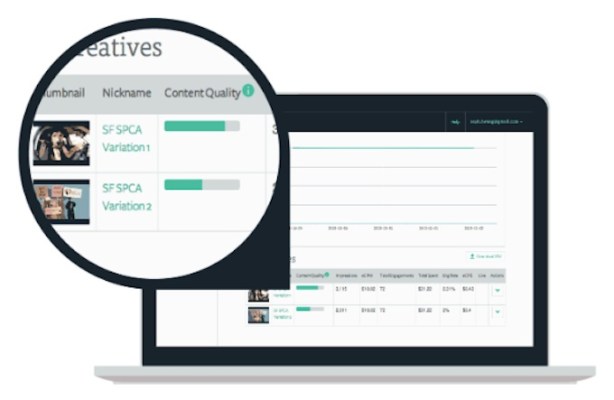Native advertising is sometimes hyped up as being just like regular content — but I think it’s fair to say that isn’t always the case.
In fact, Dan Greenberg, the CEO of ad company Sharethrough, told me that there’s “a little bit of a battle for the web” shaping up, with one side pushing for native ads that contain genuinely good content, and the other trying to slap the native label on repackaged traditional ads.
Sharethrough, which started out as a video ad company but has become focused on in-feed native ads, is trying to encourage better content with a new feature that actually scores the quality of ads. It’s not analyzing the content itself, but instead looking at factors that indicate whether or not people actually like it — views, clicks, social sentiment, and the relevance of the story to the current news and social media conversation. (Analytics company Chartbeat just announced that it’s also trying to provide more data around native ad engagement.)
So if a marketer is trying to decide which of their blog posts are worth promoting through native advertising, Sharethrough can tell them what’s already resonating with consumers. In addition, Greenberg said the Content Quality Score is actually a factor in the Sharethrough Ad Exchange, so advertisers who have a higher quality score will be prioritized when they bid. The score is a relatively small factor in the auctions right now, Greenberg admitted, but it could be dialed up over time.
“This is about making the bet on content being the inevitable future — or maybe not inevitable, but a better experience for consumers,” he said.
I couldn’t resist asking to score some TechCrunch content — specifically, a post I wrote about Sharethrough’s $17 million in Series C funding and a guest column that Greenberg wrote about native ads. Everything’s scored between 0 and 1, and apparently the funding story came in between 0.6 and 0.8, while the guest column was between 0.5 and 0.6.
Why the disparity? Sharethrough suggested that it may have something to do with the fact that the funding story was more recent, but me, I think it’s because I’m a better writer.
